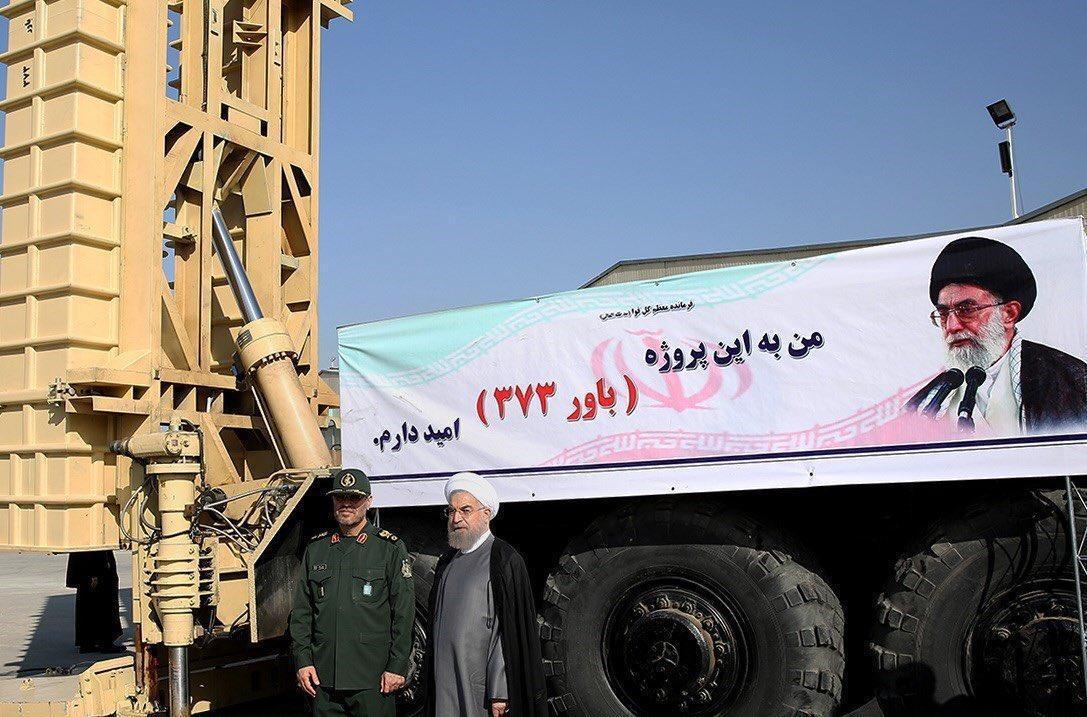Iran tests first ever long-range missile defence system
Iranian authorities claim both defence systems and ‘combat capabilities’ will be increased in the next few years amid escalating tensions with US over ballistics programmes

Iran has tested its first ever long-range missile defence system amid tensions with the US over its weapons programme, Iranian state media has said.
Work on the new Bavar 373 system is underway, Farzad Esmaili, head of the Revolutionary Guards’ air defences, told IRIB in an interview on Sunday. It is expected to be fully functional by March 2018, he added.
Iran already has an S-300 Russian-made defence system, designed to defend against aircraft and cruise missiles.

While Tehran purchased it in 2010, international sanctions meant the import of parts was suspended for years. The system went online in March this year after the 2015 nuclear deal with world powers, which saw the measures which had crippled the Iranian economy lifted in return for curbs on Iran’s nuclear programme.
The Bavar 373 – which translates as “faith” – was created after construction on the S-300 was brought to a halt. It is designed to intercept long range, or ballistic weaponry.
“The system is made completely in Iran and some of its parts are different from the S-300. All of its sub-systems have been completed and its missile tests have been conducted,” Mr Esmaili said.
Also this weekend, Amir Hatami, Iran’s new Defence Minister, said the country has “a specific plan to boost missile power”, which he hoped would increase “the combat capabilities of Iran’s ballistic and cruise missiles” over the next four years.
Last month the Iranian parliament voted to shore up its ballistic missile programme and the international reach of its paramilitary Revolutionary Guard with extra spending in retaliation to new ballistics-related sanctions slapped on Iran by the Trump administration.
While the US has admitted more than once that Iran is complying with the terms of the historic 2015 nuclear deal, the White House has insisted that Tehran will face consequences for the recent ballistics tests, which it says breach the “spirit” of the agreement reached under Barack Obama.
The wording of the UN resolution that endorsed the nuclear deal called upon Iran not to “undertake any activity related to ballistic missiles designed to be capable of delivering nuclear weapons, including launches using such ballistic missile technology”.
Relations between Tehran and Washington have soured quickly since US President Donald Trump took office in January.
The new President immediately set about imposing new financial penalties on individuals related to terror-related offences, and imposed a travel ban for citizens of Iran and six other Muslim countries, which has since become the subject of intense legal battles.
Iran, in return, temporarily banned US citizens from travelling to the country, and conducted a ballistic missiles test in January, and another in July.
On the campaign trail, Mr Trump proposed scrapping the nuclear deal altogether, a move widely criticised for endangering an agreement which former Secretary of State John Kerry said “made the world a safer place”.
Iranian President Hassan Rouhani recently warned that his country’s abandoned nuclear programme could be restarted “within hours” if US “threats and sanctions” continue.
The US president is yet to communicate his administration’s broader Iran policy.
Join our commenting forum
Join thought-provoking conversations, follow other Independent readers and see their replies
Comments
Bookmark popover
Removed from bookmarks